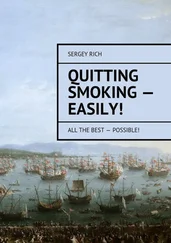DR. BERGEN: I would say the same to you as to Porter. You are not using your own experience sufficiently, but merely my terms. Martha!
MARTHA: In my dream at night I wished with all my heart to participate in the minds of the people I like very much, I mean directly, not indirectly: to feel their consciousness as they do. And in my dream I was trying to open Eleanor’s forehead and look inside. And I told her how noble she had been to kill herself and how it had helped all of us. [MRS. BERGEN suppresses an outcry .]
DR. BERGEN: Thank you, Martha. You have done well. My own thoughts, which I must now testify, concern Eleanor also. She died in her enactment of the method of our belief. By gazing at the sky until the self-evident intuition was given to me, I have again confirmed my previous announcement of the reason for her death. She killed herself because she had come to the impasse where she could not understand her own heart and could not decide once for all what she wanted, except by examining her heart in the perspective of death. It is a method which we must use only as a last resort; but it was her last resort and she recognized it, and accepting our belief she killed herself and thus became our first witness. Let us hear once more the poem she wrote and made a recording of when she still hoped to find in poetry a way of life for herself.
[ There is a victrola on the terrace, unseen by the audience. PORTER gets up and starts the victrola. The voice which issues from it is distant, low, husky yet feminine, and in a way, oracular and dramatic. It actually comes from a victrola record, and is not an off-stage voice. ]
ELEANOR’S SONG:
I said, as by the river, we
Gazed at the sliding water’s gray,
“This life’s a dream, as others say,
A dream confirmed when memory
Holds up the past and dims the day,
As in the future we shall see
The present quickly passed away,
Irrelevant to our belief,
Misunderstood as every play,
Full of a secret actuality
Which worked its wish consummately
And held the conscious will at bay.”
[ Enter ANTHONY , at right of living room. He walks toward the terrace and mounts the steps .]
ANTHONY:
Was that her voice? That was her voice indeed.
Who can distinguish now between the ghost
And the actual, the living and the immortal?
One hundred times the globe has whirled about,
Carrying her small grave in its turning ground.
One thousand times the I beneath my face
Has winced to think that she surpassed my love.
One million times a single question raises
Its expectation, its unfinishedness,
In the unending corridors of unconsciousness.
Why did she kill herself? The phonograph
Speaks only what’s plausible to the small ear.
But death in Gothic letters confronts my face,
Cannot be read, too near, cannot be known.
DR. BERGEN [ obviously annoyed ]: We are glad to have you here, Anthony, you are always welcome. But it is unnecessary for you to affirm continually your refusal to accept our reason for Eleanor’s death. [ Turning to his DISCIPLES.] To conclude today’s ceremony we will have a second antiphony devoted to each one’s thoughts of Eleanor, our witness. Martha! And then all of you in that order.
MARTHA: I remember the day we went shopping together. Eleanor bought some things at Wanamaker’s, I do not remember what. We both had ice-cream sodas at their fountain, and then drove to Long Beach and went swimming. She was very excited. She swam as if she were hysterical or drowning.
MONTEZ: I remember how charming and vivacious she was last summer.
PORTER: I remember how devoted and loyal she was to her father.
PERRY: I remember with what poise and grace she tidied her hair before the looking-glass. She was very beautiful.
ROSENBERG: I remember her coming from the telephone one day and looking like one who has just taken off her glasses and has a dazed look and a welt on the bridge of the nose between the eyes.
FRIETSCH: I remember her coming from the telephone another day and when she saw me, looking as if I had seen her unexpectedly with her clothes off.
SCHMIDT: I had reason to believe that she was fond of me. I was in love with her. She was very beautiful.
RAKOVSKY: She was excited and high-strung and this gave her a theatrical quality which was very attractive.
HERRIOT: We dined together once at the Commodore when I returned from a trip to Chicago. I was amazed at the variety of her emotions during the course of one evening. She retired several times in order to make phone calls. Her life and death seem to me to be models for imitation.
DR. BERGEN: I agree with you, Herriot.
[ A pause. Several DISCIPLES are weeping. DR. NEWMAN gets up and goes toward the terrace. ]
DR. NEWMAN: [ To MRS. BERGEN] An opportunity has come much sooner than I expected. [ To DR. BERGEN] Dr. Bergen, in all sincerity and sympathy, I would like to suggest to you certain difficulties in your scheme of things. I would not intrude except for the fact that your wife has asked me to speak to you, and in addition, the fact that your doctrines have an aspect which would be impossibly dangerous and foolish, unless they are, in fact, true doctrines. I mean that your final test, that of dying to find one’s true self is indefensible unless you are sure that you are right. But perhaps you prefer to discuss these matters with me in private.
DR. BERGEN [ impatiently ]: Go right ahead, sir. I hide nothing from my students and we believe, as you heard, that to hide anything is to multiply ignorance and blindness.
DR. NEWMAN: How, then, do you know that your belief in the sky as God’s great eye is true? What possible proof have you?
DR. BERGEN: I know by intuition — by gazing upon the inevitable blue until it becomes self-evident that it is so.
DR. NEWMAN: Intuition is not proof. Proof is afforded when an hypothesis is framed — forgive me for using the jargon of science — making certain predictions about future events. If these events occur, the statement or hypothesis is true. If not, they are false. But intuition is something else again. The drunkard and the lunatic also have their indubitable intuitions — although I am not, I humbly assure you, suggesting that you are like one or the other. Many people have different and contradicting intuitions. Suppose another person had an intuition of the sky as God’s round wall to hide the realm of heaven. How would you show him that he was wrong and you, on the contrary, correct?
DR. BERGEN [ becoming heated, but still full of assurance ]: How do you know that the grass is green? By looking at the grass. But some are color-blind. How can you prove the greenness of the grass to them? You cannot because of their incapacity to see color. Thus to some the sky is merely blueness and nothingness. Only by looking at the sky, grasping its nature by means of pure attention, can you be convinced that the sky is God’s sensorium, God’s blue eye. [ There is a murmur of pleasure among the DISCIPLES.]
DR. NEWMAN: What you are saying amounts to this, that your belief can neither be proven nor disproven, for you provide no specific test of your assertion. The sky remains what it is for perception, no matter what is said about it, and almost anything can be said. If one does not see the sky in your fashion, one is blind.
DR. BERGEN [ sharply ]: Yes, one is blind. You are blinded by scientific method which looks past and beneath the facts of direct experience and forgets them. Consider, for example, the difference between the physicist’s time — readings on a clock, a machine’s abstract numbers — and felt time, time as we experience it from moment to moment. Surely you cannot deny that the latter is prior and ultimate, for without that actual experience how could the physicist get his kind of time? How could he have any experience whatever?
Читать дальше












